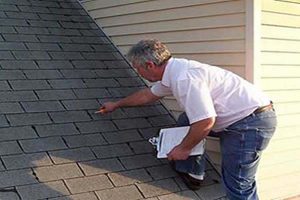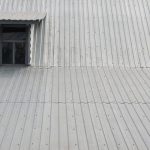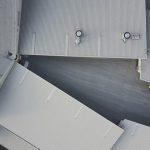Popular Roofing Materials for Colorado Mountain Homes
Roofing is a big investment, especially when you’re looking for a solution that can handle extreme weather conditions and a harsh environment. Many materials available in the market today aren’t suitable for mountain home roofing, as these properties have to deal with fluctuating temperatures, storms, hail, lightning, and heavy snowfall. You need to choose residential roof materials carefully in order to ensure the structure lasts for a long time.
Popular Mountain Home Roofing Materials

The correct roofing material will overall boost your roof system.
Modern roof materials are carefully shaped and formulated to provide consistent protection. They undergo rigorous testing and are rated for different weather conditions. You can find an affordable mountain home roofing or commercial solution easily with a bit of online research. Many companies in the industry also offer free professional advice on different materials. Some of the most popular options include:
- Asphalt – Asphalt is a popular solution because it is affordable, recyclable, and available in a wide range of colors. Many manufacturers produce asphalt shingles specifically designed for harsh weather conditions. They are rated for snow, cold weather, wildfires, and other such disasters. However, asphalt isn’t as resilient as metal or cedar shakes. Asphalt shingles are light-weight and can tear off during severe storms. Asphalt also lasts for 20-25 years but isn’t as durable as some other Colorado roofing materials.
- Metal – Metal has gained a lot of popularity in recent years. Manufacturers have improved the material’s appearance, resilience, and composition to ensure it can handle all kinds of weather conditions. Most modern metal roofs are noiseless, providing excellent insulation, and can last for 50 to 100 years. However, metal systems are more expensive than asphalt and can sustain some damage during hail storms.
- Cedar Shakes – Cedar shakes are a popular choice for mountain home roofing because they offer a lot of protection against cold weather. Cedar is also a naturally resilient material that can last for a long time. Unfortunately, this material is heavy and requires a lot of maintenance to last.
You can discuss the pros and cons of every option mentioned here with a professional before making a decision. They will recommend a solution that suits your unique requirements.
Synthetic – Pros and Cons
Synthetic roofing solutions are often made from plastic or rubber materials. They can imitate the appearance of asphalt, concrete, metal, tile, slate, or wood shakes. These materials are light-weight, versatile, and more affordable. They are also more resistant to algae and mold, and can withstand the impact of hail. However, this material doesn’t have a proven track record and was only introduced recently.
Contact an experienced and trustworthy company for some advice on Colorado roofing materials. These experts are familiar with the local weather conditions and know how different materials perform in real-life. They will offer straightforward advice and help you plan a budget for the installation.




You must be logged in to post a comment.